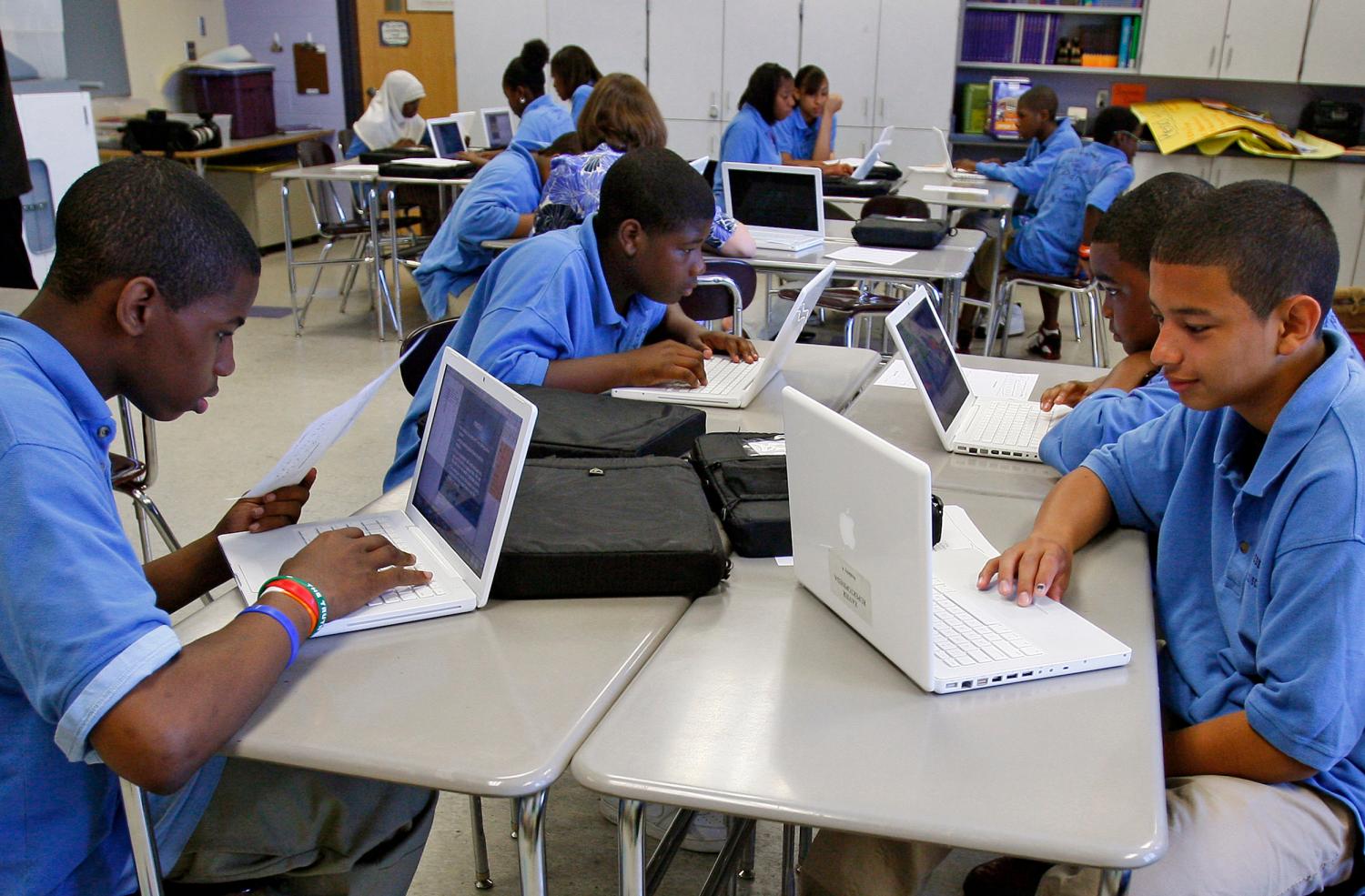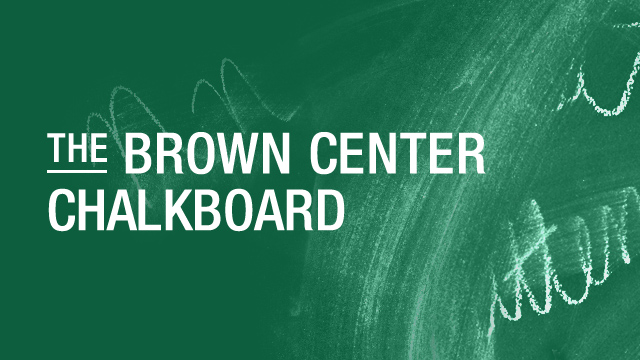The buzz about personalized learning as a strategy for improving education systems seems to grow by the day. Recently, Priscilla Chan and Mark Zuckerberg announced they were donating their shares in Facebook (worth an estimated $45 billion) to support personalized learning. Research from RAND makes a useful contribution to the literature on this issue.
Personalized learning describes Internet based learning platforms that respond to the user’s learning style, interests, and pre-existing knowledge. The RAND study describes five personalized practices from the schools in their study: learner profiles, personal learning pathways, competency-based progression, flexible learning environments, and emphasis on college and career readiness. There is no consensus definition of personalized learning, but a central component is education technology.
Study design
The study includes student achievement data from 62 schools that had implemented personalized learning. To evaluate whether personalized learning improved outcomes compared with traditional schools the authors constructed virtual comparison groups. Each student in the study was compared with 51 other students that were the same gender, were enrolled in the same grade, and had similar pre-test scores on the Northwest Evaluation Association Measures of Academic Progress (NWEA MAP) assessment. The comparison students attended schools that had the same urbanicity and similar numbers of students enrolled in free and reduced-price lunch. This approach allowed the authors to compare the pre- and post-test MAP assessment scores for students in treatment schools and the students in the virtual control group.
Results
Students in treatment schools had significant gains on the NWEA MAP assessment The average effect size for students was substantively large (0.27 standard deviations in math and 0.19 standard deviations in reading). The authors found significant and positive effects of personalized learning on a majority of schools. Growth continued for each year of program implementation in both math and reading.
Achievement gaps
The authors also find that personalized learning helped to close academic achievement gaps. Students who started in the bottom quintile were more likely to exceed their virtual comparison group than students in the top quintile. This is noteworthy because prior research focusing on students’ access to computers and high-speed internet has shown that Internet based education technologies could contribute to widening achievement gaps.
Methodological concerns
There are two noteworthy methodological issues. The first has to do with the treatment itself. Nearly every school employs some aspect of personalized learning as they define in the RAND study. For example, a component of personalized learning is an emphasis on college and career readiness and incorporating data from formative assessments. For many schools around the country these are common practices. Only certain aspects of personalized learning, for certain schools, represents a departure from business as usual. To some extent personalized learning is nothing new.
A more concerning issue is the generalizability of the findings. Each school in the treatment group received funds from the Next Generation Learning Challenges, the Charter School Growth Fund, or the Bill and Melinda Gates Foundation. Schools gained financial support for personalized learning through a competitive grant process. 57 out of the 62 (91 percent) schools in the treatment sample were charter schools compared with four percent of schools in the United States. This study allows for an inference about the influence of personalized learning on student achievement in charter schools, but on the assumption that students across these school types are qualitatively different in some way, these findings cannot support a claim about traditional public school implementations.
Randomized assignment could have addressed these concerns. However, such a design was not possible because personalized learning was implemented prior to the start of the RAND analysis. The authors were also not able to find data from neighboring schools. Given these constraints they chose a rigorous matching design.
Scaling up personalized learning
The results of this study are promising and merit further research. But, we should read this article as speaking to the efficacy of blended learning in charter schools that have received major financial support for personalized learning. There are two major challenges to scaling personalized learning up to the national level. First, it would require huge investments to achieve ubiquitous high-speed Internet access. Second, teachers would need training on using personalized learning tools in their classrooms. These barriers to implementation at scale have and will continue to insulate schools from the disruptive forces of education technology.
Facebook and Bill and Melinda Gates Foundation are donors to the Brookings Institution. The findings, interpretations, and conclusions posted in this piece are solely those of the author and not influenced by any donation.
The Brookings Institution is committed to quality, independence, and impact.
We are supported by a diverse array of funders. In line with our values and policies, each Brookings publication represents the sole views of its author(s).





